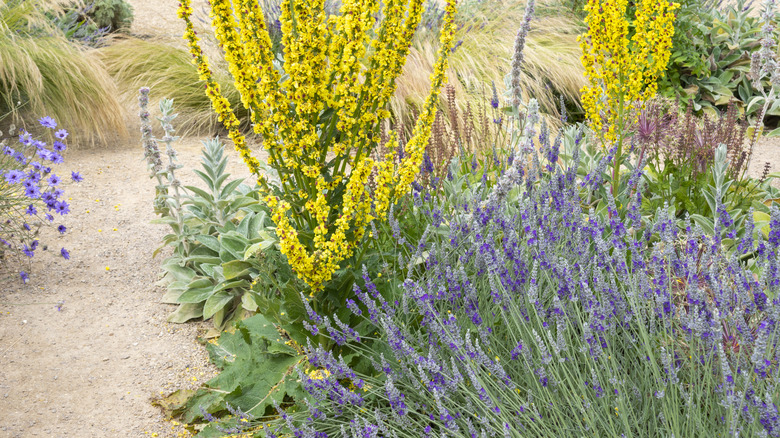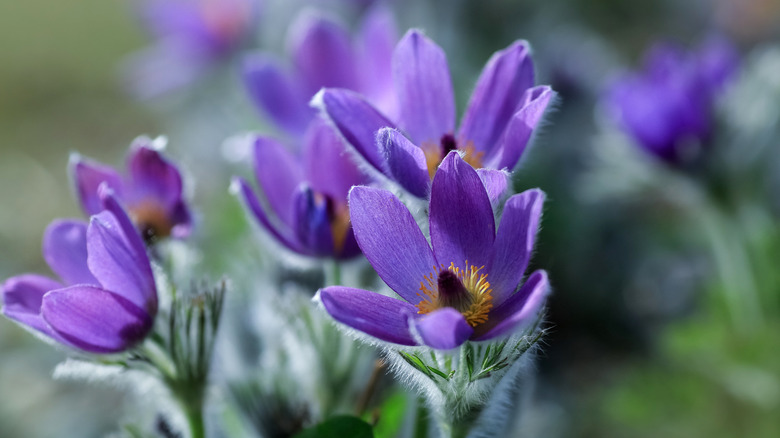The Beautiful Purple Perennial That Appreciates Growing In Gravel
There are some plants that cannot grow without the perfect soil, and then there are those plants that seem happiest in the least likely places—like gravel. The pasque flower (Pulsatilla vulgaris) is a part of the latter group. Pasque is a purple perennial that thrives in gravelly soil and proves that a garden bed of stones can also be home to something so striking and resilient. So, if you have a gravel garden, then consider growing pasque. These plants will reward you with blooms each spring that look every bit as delicate as silk while being far tougher than they appear.
Native to the dry meadows of Northern Europe, the pasque has evolved to thrive in similar conditions across the United States, particularly in USDA Hardiness zones 3 through 8. Gravel can provide the drainage that these perennials require, thus, preventing root rot. These perennials are the first to produce a deep violet bloom every spring while the rest of the garden is quiet.
The beauty of these flowers doesn't end in spring. Once the petals fall, seeds shaped like feathery plumes appear next. They stay on the plant until summer and sway gently with the breeze. In a gravel bed, they add lightness even after spring has passed.
How to grow pasque flowers in gravel
Pasqueflowers are easy to grow if you pick the correct spot. Pick a location with full sun—where they get about 6 hours of sunlight daily—and soil that drains well. Gravel is ideal for this plant because it prevents water from collecting around the roots. The plant is drought-tolerant, and you should avoid planting it in low, soggy areas.
Pasque can easily grow from seeds, but flowers won't likely bloom in the first year. Instead, the plant often needs a couple of years to bloom fully. Pasque flowers do not like to be moved once planted, so pick a good spot and leave it there. They spread slowly over time and sometimes they even reseed themselves but they don't spread aggressively.
This plant is known to be resistant to both rabbits and deer, so if you plant them on your garden borders, your yard will be a lot safer. However, remember that all parts of the pasque are poisonous to humans and pets, so handle them with care. If you want variety, grow pasque with companion flowers such as blue-eyed grass (Sisyrinchium angustifolium) and prairie smoke (Geum triflorum). Whether planted alone or paired with spring bloomers, planting pasque is a stunning gravel garden idea and can completely transform your outdoor space.

